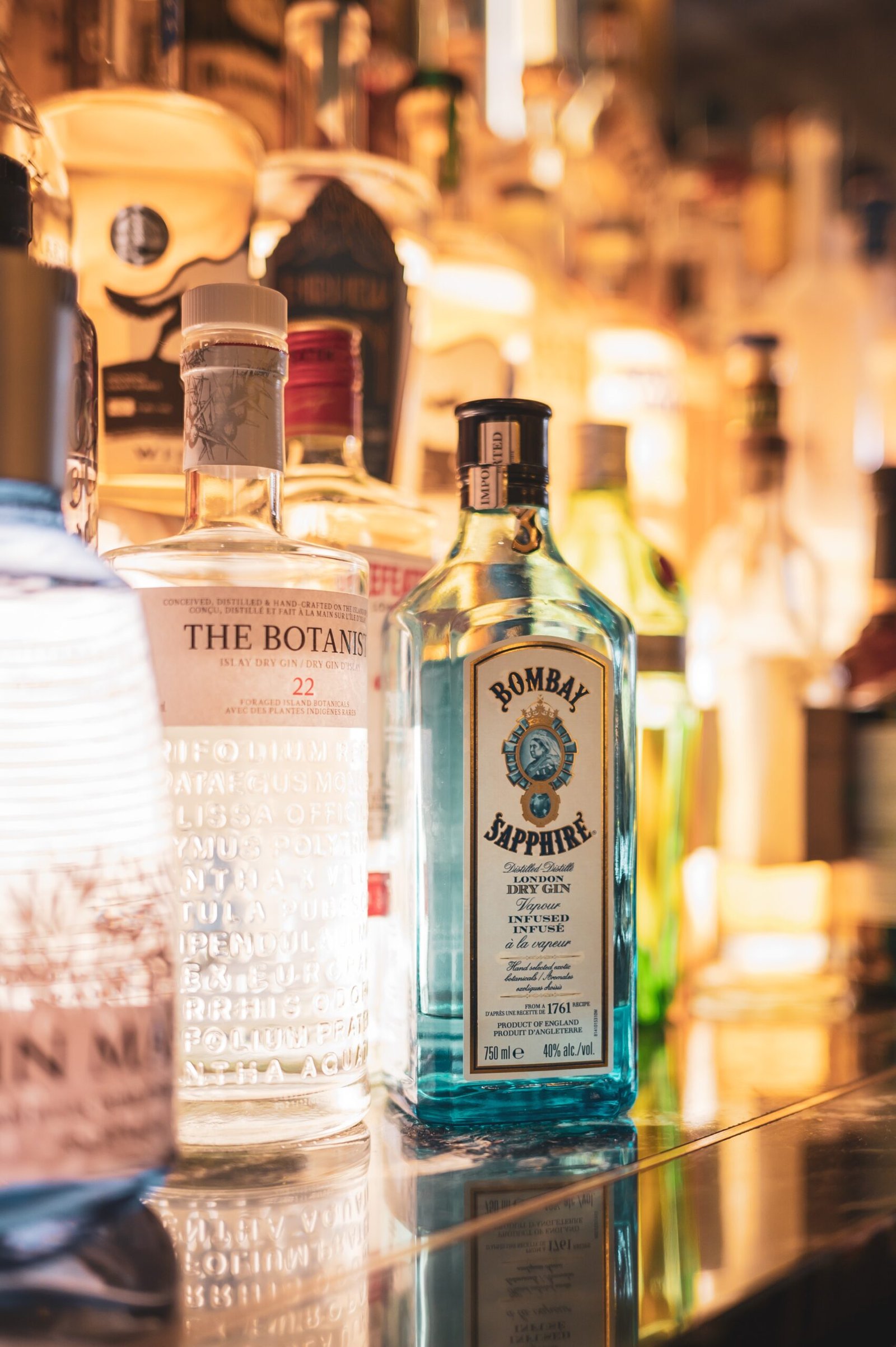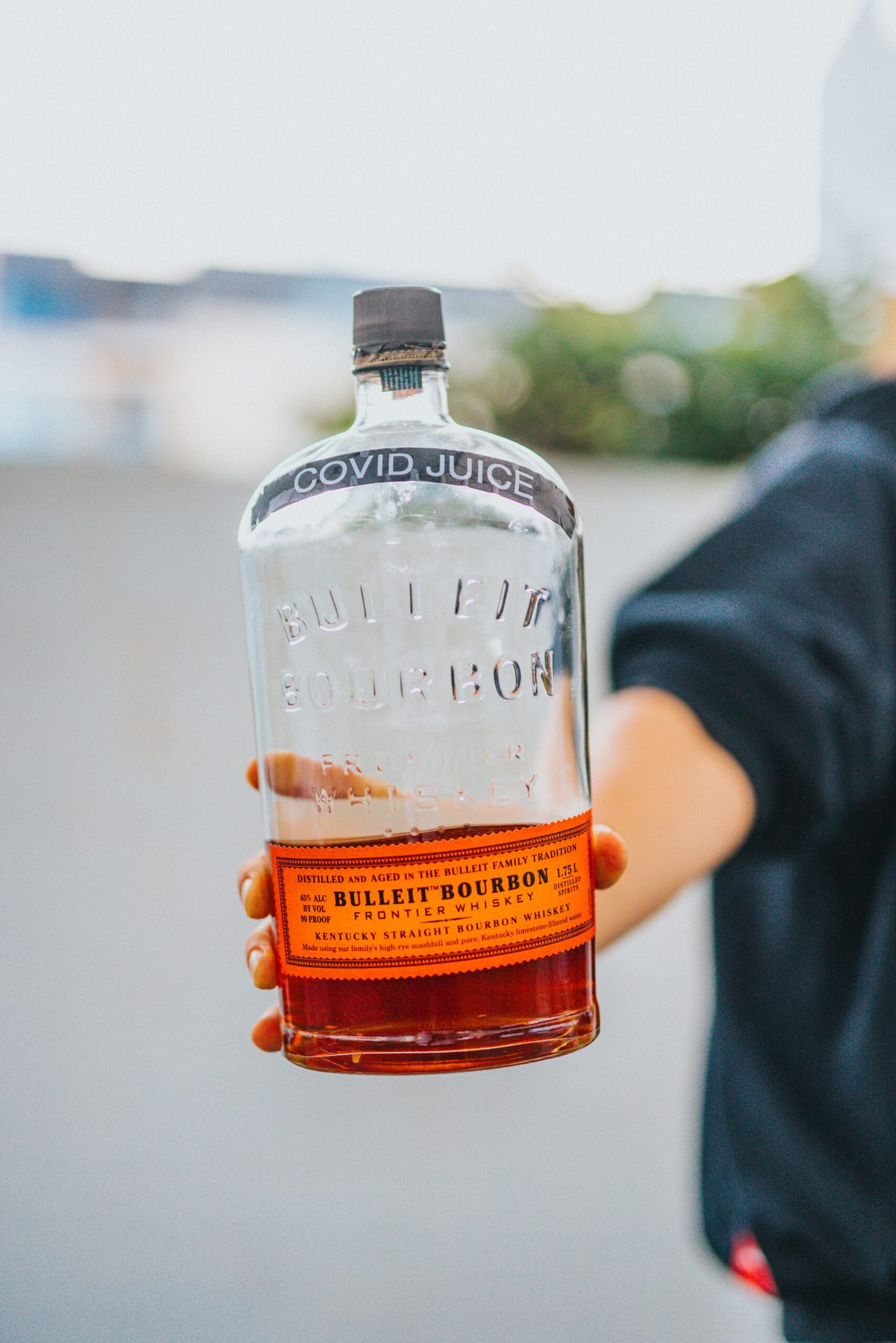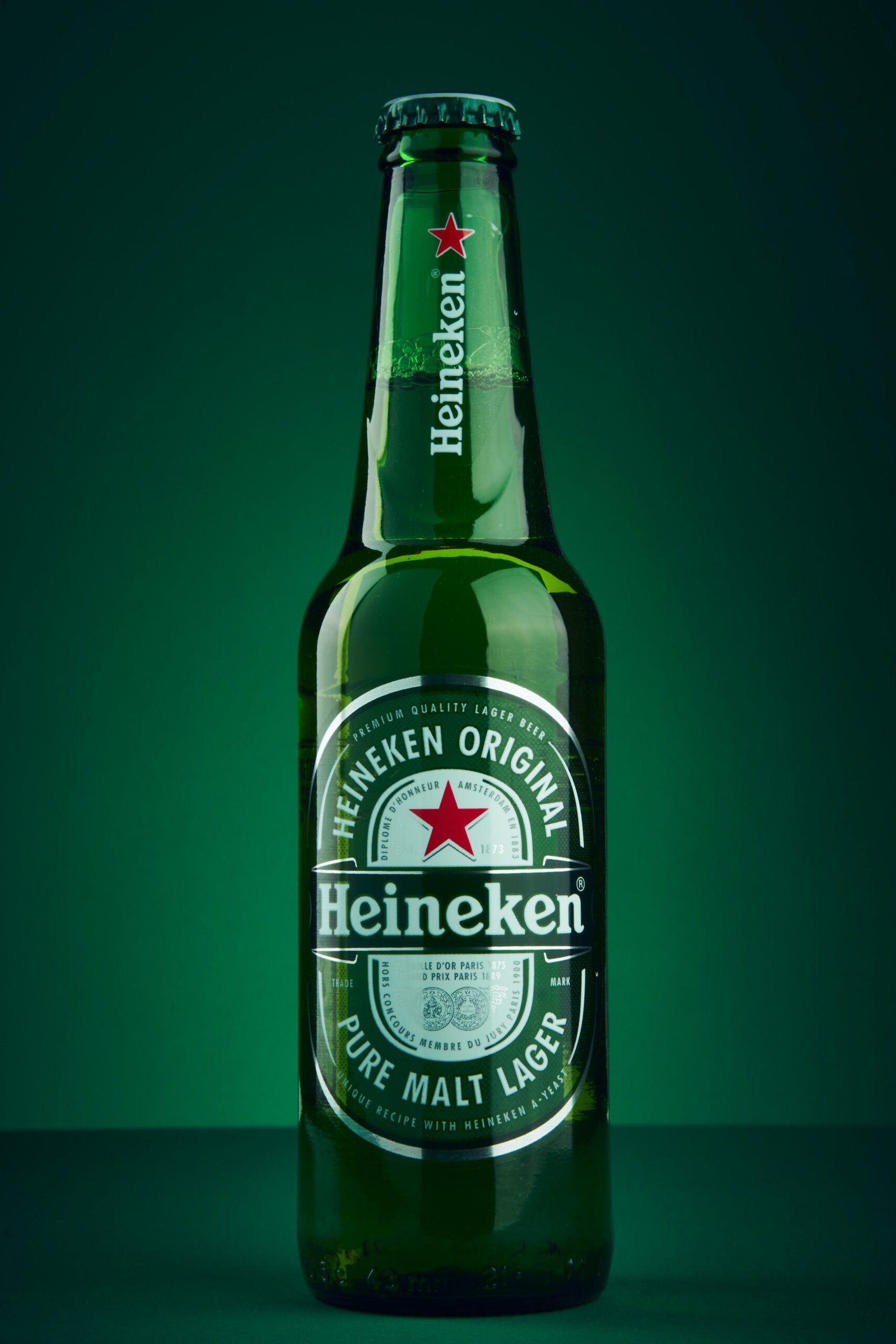If you're someone who enjoys the occasional drink, you may have wondered about its impact on your health. Specifically, you might be curious about whether alcohol can trigger gout attacks. Gout is a type of arthritis that often causes intense pain and swelling in the joints, and understanding its triggers is crucial for managing the condition. In this article, we'll explore the relationship between alcohol and gout attacks, shedding light on the potential role of alcohol in exacerbating this painful condition. So, let's uncover the truth and unravel the connection between alcohol and gout.

Understanding Gout
Definition of gout
Gout is a type of arthritis that occurs when there is an accumulation of uric acid crystals in the joints, leading to inflammation, swelling, and severe pain. It most commonly affects the joints in the big toe, but can also occur in other joints such as the ankles, knees, elbows, and wrists.
Causes of gout
The primary cause of gout is an elevated level of uric acid in the blood, a condition known as hyperuricemia. Uric acid is a waste product that is formed when the body breaks down purines, which are naturally occurring compounds found in certain foods. When the level of uric acid becomes too high, it can form crystals in the joints, triggering a gout attack.
Signs and symptoms of gout
Gout typically presents as sudden and intense pain in the affected joint, accompanied by redness, swelling, and increased warmth. The pain may be so severe that even the slightest touch or pressure on the joint becomes unbearable. Gout attacks often occur during the night and can last for several days or weeks, with periods of remission in between.
How Gout Arises
The role of uric acid in gout development
Uric acid is a byproduct of purine metabolism, and normally, it dissolves in the blood and is excreted through the kidneys. However, when there is an excessive production of uric acid or when the kidneys are unable to effectively remove it from the body, the uric acid level rises and can lead to the formation of urate crystals in the joints, causing gout.
Influence of diet in gout occurrence
Diet plays a crucial role in the development of gout. Foods high in purine content, such as organ meats, seafood, red meat, and sugary beverages, can increase the level of uric acid in the blood. Additionally, excessive consumption of alcohol, especially beer and spirits, has been strongly associated with an increased risk of gout.
Age and gender as factors of gout
Gout is more common in men than women, with the risk increasing significantly after the age of 40. This can be attributed to hormonal differences and the fact that women tend to have lower uric acid levels than men before menopause. However, after menopause, women's uric acid levels can rise, and the risk of gout becomes more comparable to that of men.
Alcohol: The Basics
Components of alcohol
Alcohol, also known as ethanol, is a psychoactive substance that is produced through the fermentation of sugars by yeast. It is commonly found in various alcoholic beverages, such as beer, wine, and spirits. The alcohol content in different beverages can vary, with beer typically having a lower alcohol percentage than wine or spirits.
How the body processes alcohol
When alcohol is consumed, it is rapidly absorbed into the bloodstream through the stomach and small intestine. The liver then metabolizes alcohol using enzymes, converting it into acetaldehyde, a toxic substance that is further broken down into acetate and eventually carbon dioxide and water. The process of alcohol metabolism can put strain on various organs, including the liver and kidneys.
Effects of alcohol on the body
Alcohol has both short-term and long-term effects on the body. In the short term, it can cause relaxation, euphoria, impaired judgment, and loss of coordination. However, excessive alcohol consumption can lead to more serious health problems, including liver damage, cardiovascular diseases, and addiction. It is also important to note that alcohol can exacerbate existing health conditions, such as gout.
Alcohol and Uric Acid
How alcohol contributes to increased uric acid
Alcohol consumption, particularly excessive intake, can hinder the elimination of uric acid from the body. Alcohol interferes with the kidneys' ability to effectively remove uric acid, leading to its accumulation in the bloodstream. Additionally, alcohol metabolism produces substances called purines, which can further elevate uric acid levels.
Different types of alcohol and their uric acid levels
While all types of alcohol have the potential to increase uric acid levels, some have been found to have a more significant impact than others. Beer, for example, contains high levels of purines, as well as carbohydrates that can increase the production of uric acid. On the other hand, moderate consumption of wine has been associated with a lower risk of gout, possibly due to its antioxidant properties.
Study linking alcohol and uric acid levels
A study published in the Journal of Rheumatology examined the relationship between alcohol consumption and uric acid levels in men. The results showed that both beer and spirits intake were associated with higher uric acid levels, while wine consumption had a neutral effect. The study suggests that alcohol, particularly beer and spirits, can contribute to hyperuricemia and potentially trigger gout attacks.

Alcohol as a Potential Trigger for Gout
Study linking alcohol consumption and gout attacks
Multiple studies have consistently shown that alcohol consumption, especially heavy drinking, increases the risk of gout attacks. A study published in The Lancet followed a large group of participants over a period of 12 years and found that consuming alcohol, particularly beer, significantly increased the likelihood of gout attacks.
Mechanisms behind alcohol-induced gout attacks
Alcohol can trigger gout attacks through various mechanisms. Firstly, it raises uric acid levels, increasing the likelihood of crystal formation in the joints. Secondly, alcohol promotes dehydration, which can lead to the concentration of uric acid in the blood and higher chances of crystal deposition. Lastly, alcohol may also contribute to inflammation and the release of other inflammatory substances, exacerbating gout symptoms.
Testimonials of gout patients on alcohol-induced attacks
Many individuals with gout have experienced firsthand the connection between alcohol consumption and gout attacks. Testimonials from gout patients often reveal that a night of heavy drinking or indulging in purine-rich foods can lead to excruciating pain and inflammation in the affected joints. These personal experiences further highlight the potential role of alcohol as a trigger for gout attacks.
Distinguishing Types of Alcohol and Their Effects
Beer and gout
Beer has long been associated with an increased risk of gout, primarily due to its high purine and carbohydrate content. Purines are broken down by the body into uric acid, leading to elevated levels in the blood. The carbohydrates found in beer can also contribute to the production of uric acid. Therefore, individuals with gout are often advised to limit their beer consumption or avoid it altogether.
Wine and gout
In contrast to beer, moderate consumption of wine has been suggested to have some potential health benefits, including a lower risk of gout. Red wine, in particular, contains antioxidants called polyphenols, which may help reduce inflammation and oxidative stress in the body. However, excessive wine consumption can still contribute to the development of gout due to its alcohol content.
Spirits and gout
Spirits, such as whiskey, vodka, and rum, have been found to have a similar impact on gout as beer. Spirits, particularly when consumed in large quantities, can increase uric acid levels and contribute to the formation of urate crystals. It is recommended for individuals with gout to limit their intake of spirits and opt for other beverages with lower purine content.

Impact of Alcohol Quantity on Gout Risk
Moderate drinking and risk of gout
Moderate alcohol consumption has been defined as up to one drink per day for women and up to two drinks per day for men. In the context of gout, moderate drinking does not seem to significantly increase the risk of gout attacks. However, it is important to note that moderation is crucial, as excessive alcohol intake, even occasionally, can still trigger gout attacks.
Heavy drinking and risk of gout
Heavy or excessive alcohol consumption is strongly associated with an increased risk of gout. Studies have shown that individuals who consume higher amounts of alcohol, especially on a regular basis, are more likely to experience gout attacks. It is advisable for individuals with gout to limit or avoid heavy drinking altogether to minimize the risk of flare-ups.
Non-alcoholic beer and gout risk
Non-alcoholic beer is often considered a healthier alternative for individuals who enjoy the taste of beer but want to reduce their alcohol intake. While non-alcoholic beer contains significantly less alcohol, it may still contain some purines, which can contribute to the risk of gout. It is important for individuals with gout to consult with their healthcare provider before consuming non-alcoholic beer.
Understanding the Role of Dehydration in Gout Attacks
How alcohol leads to dehydration
Alcohol is a diuretic, which means it increases urine production and can lead to dehydration. When alcohol is consumed, the body prioritizes breaking down and eliminating alcohol, resulting in increased urine output. This can disrupt the balance of fluids in the body and lead to dehydration, which can contribute to gout attacks.
Dehydration as a triggering factor for gout
Dehydration can have a significant impact on the risk and severity of gout attacks. When the body is dehydrated, urine becomes more concentrated, causing uric acid to be less soluble and more likely to form crystals. Dehydration also reduces the volume of fluid that can help dilute uric acid in the blood, further increasing the risk of crystal formation in the joints.
Study linking dehydration and gout attacks
A study published in Arthritis & Rheumatology investigated the role of dehydration in gout attacks. The findings showed that individuals with gout who experienced dehydration, either due to alcohol consumption or other factors, had a higher likelihood of developing gout attacks within 24 hours. The study emphasizes the importance of staying hydrated to reduce the risk of gout flare-ups.
Prevention and Management of Alcohol-induced Gout Attacks
Reducing alcohol consumption
One of the most effective ways to prevent alcohol-induced gout attacks is to reduce alcohol consumption. This can involve limiting the amount of alcohol consumed, avoiding binge drinking, and opting for beverages with lower alcohol and purine content. Consulting with a healthcare professional can provide guidance on appropriate limits and strategies for reducing alcohol intake.
Hydrating properly
Proper hydration is crucial for individuals with gout, as it helps maintain the solubility of uric acid in the blood and promotes the elimination of uric acid through urine. Drinking an adequate amount of water (approximately 8 cups per day) can help prevent dehydration and reduce the risk of gout attacks. It is important to note that hydration should be balanced and excessive fluid intake should be avoided to prevent strain on the kidneys.
Nutritional plans supporting the reduction of gout symptoms
Following a balanced and healthy diet can significantly help in managing gout symptoms. This includes reducing the intake of purine-rich foods, such as organ meats, seafood, and sugary beverages. Instead, focusing on consuming low-fat dairy products, fruits, vegetables, whole grains, and lean proteins can provide essential nutrients while minimizing the risk of gout attacks. Working with a registered dietitian or nutritionist can provide personalized dietary recommendations for individuals with gout.
Addressing Common Myths About Alcohol and Gout
Alcohol as the only trigger for gout
While alcohol consumption is a well-known trigger for gout attacks, it is important to recognize that it is not the sole cause. Gout can be influenced by various factors, including genetics, diet, obesity, certain medications, and underlying health conditions. It is crucial to take a comprehensive approach to manage gout and address all potential triggers, including alcohol.
Instant development of gout after alcohol intake
Gout attacks do not typically occur immediately after alcohol consumption. It often takes time for uric acid levels to rise and for the crystals to form in the joints. Gout attacks can occur hours or even days after the consumption of alcohol. Therefore, it is important to consider the cumulative effect of alcohol over time rather than attributing gout attacks solely to the most recent alcoholic drink.
Alcohol-free living eliminates gout risk completely
While abstaining from alcohol can significantly reduce the risk of gout attacks, it does not guarantee complete elimination of the condition. Gout can still occur due to other factors, such as purine-rich foods, obesity, or underlying health conditions. Adopting a holistic approach that includes maintaining a healthy lifestyle, managing weight, and adhering to dietary recommendations is essential for long-term management of gout.
